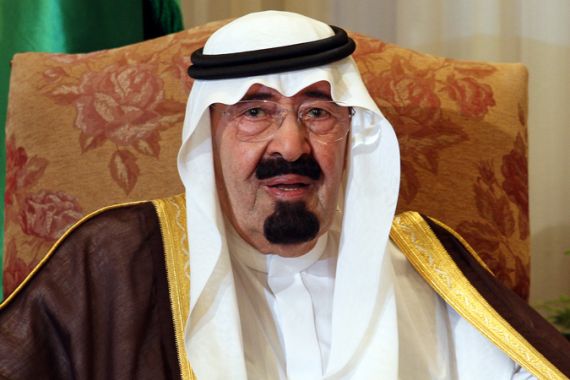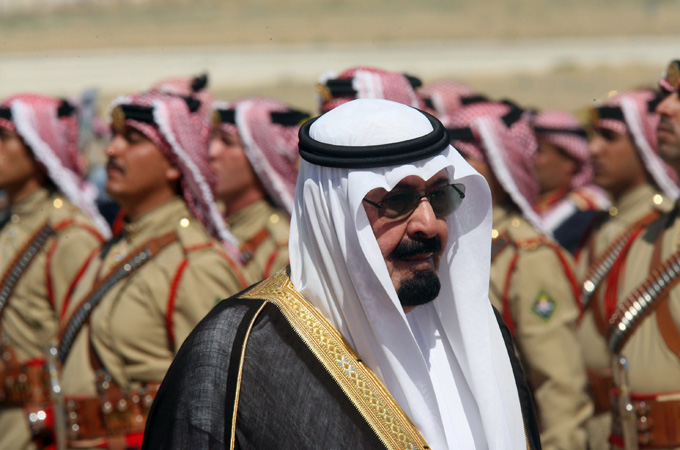Profile: King Abdullah al Saud
The leader of Saudi Arabia who inherited a nation torn between fundamentalist Islam and modernizing reformers.

 |
| The King has a personal fortune estimated at $19bn, making him among the top 5 richest royals in the world [GETTY] |
Born in 1924, King Abdullah bin Abdul Aziz al Saud is the son of Saudi Arabia’s founding father, King Abdulaziz. While he officially took power over the Kingdom of Saudi Arabia in 2005, when his brother, King Fahd, died, in actuality he had taken the reins as early as 1996, when the then King suffered a massive debilitating stroke.
Not much is known about his early years, but he received his education at a formal religious school. He also spent much of his time in the desert to – his supporters say – learn traditional Arab and Muslim values, to get to know his people.
His ability to understand the will of his people and to govern the country was tested early on, as long-simmering discontent spilled over in the aftermath of the Afghan war against the Soviets in the 1980s.
After fighting in that war, several members of the Mujahedeen – led by Osama bin Laden – returned home to Saudi Arabia, and were unhappy with the state of affairs.
In particular, they took exception to a strong US military presence established during the first Gulf War in 1990, and a royal administration that was accused of corruption.
All of this became a lightning rod for al-Qaeda. Determined to pre-empt them, however, Abdullah went on the offensive. He stripped bin Laden of his Saudi citizenship, and kicked him out of the country.
Al-Qaeda
The attacks against the US on September 11, 2001, changed things around the world, and Saudi Arabia was no exception. Indeed, some would say it was the very centre of the storm: 15 of the 19 hijackers were Saudi nationals. Fearful of losing American support, the King reached out to the Americans.
Two years later, however, things were not going exactly to the Saudi plan. Iraq had been occupied, and al-Qaeda was waging attacks inside the Kingdom itself. Moreover, the US was now accusing the Saudis of supporting hardline Islamic movements around the world.
Under increasing Western criticism and with the prospect of continued opposition at home from groups accusing him of human rights abuses, the Saudi King decided to take on a larger international role.
From trying to mediate with the Taliban in Afghanistan to the backing of the Arab-Israeli peace initiative, which offered full Arab recognition of Israel in return for a Palestinian state on the land Israel occupied in 1967, King Abdullah has been determined to play the role of regional peacemaker.
He has also travelled to Lebanon with his Syrian counterpart, to lead mediation efforts between Iranian backed Hezbollah and Sunni Lebanese politicians backed by Saudi Arabia and Christians factions there.
He has used his influence in conflicts across the region, particularly those that create threats that stretch worldwide, in an effort to have Saudi Arabia seen as a force for peace and stability.
Balancing act
At home, King Abdullah has had to tread the line between reforms and tradition. He has brought about widespread reforms in the country’s education and judicial systems, and has also sought to spur investment by making it easier to start businesses in the Kingdom.
On women’s rights, he has publicly said that he is in favour of them, but has also never hesitated from defending what are widely considered the ‘traditional values’ of a tribal society.
Both domestically and internationally, then, King Abdullah walks a tightrope – attempting to safeguard Western military support while remaining true to popular opinion amongst his people, and trying to reform Saudi society while maintaining continuity of tradition.